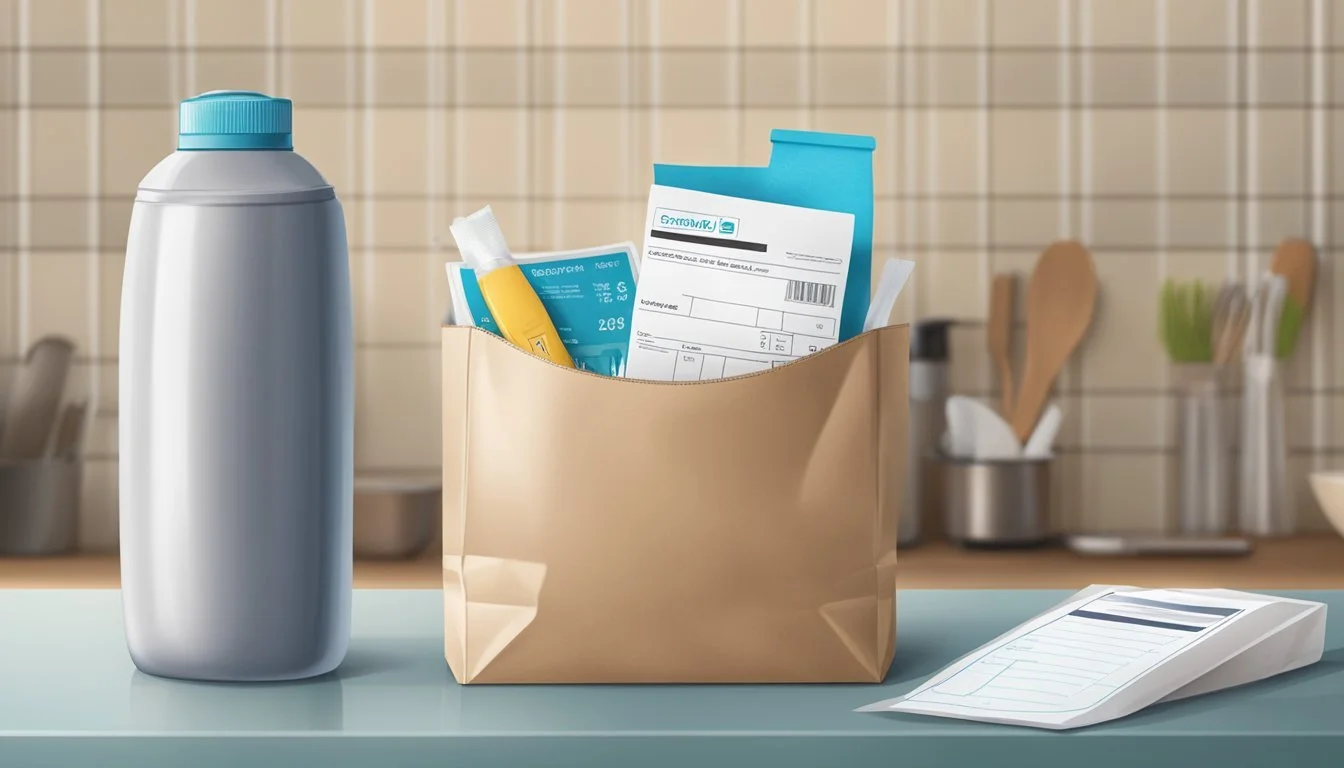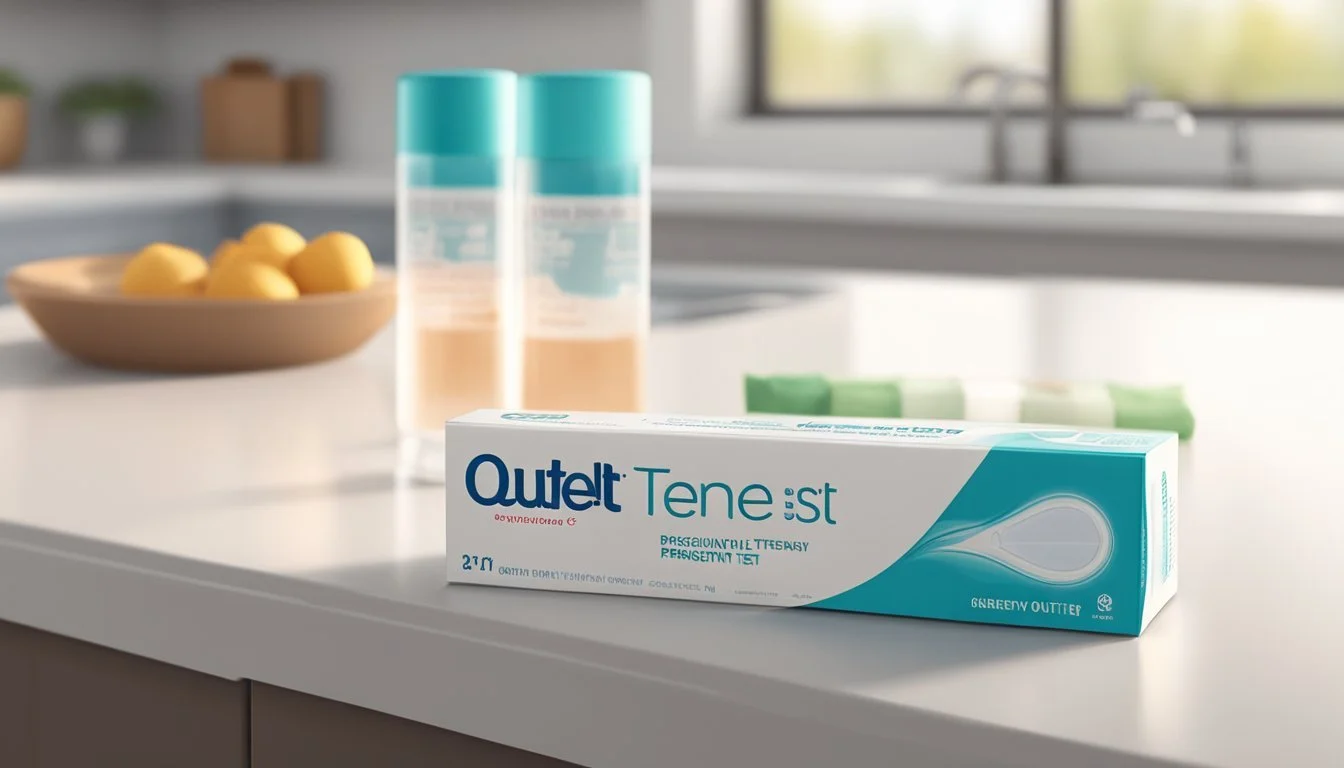Grocery Outlet Pregnancy Test
Affordable Option for Accurate Results
Pregnancy tests are essential tools for women who suspect they may be expecting. Grocery Outlet offers an affordable and accessible option with their Sure-Aid One Step Pregnancy Test. This test provides over 99% accuracy from the day of the expected period, delivering results in just 5 minutes.
The Grocery Outlet pregnancy test features a simple one-step process, making it user-friendly for those seeking quick and reliable answers. It can be conveniently purchased in-store or through same-day delivery services like Instacart, allowing for discreet and timely access.
When considering a home pregnancy test, it's crucial to check the expiration date before use. The Grocery Outlet Sure-Aid test compares favorably to well-known brands like First Response in terms of accuracy and ease of use, offering a cost-effective alternative for budget-conscious consumers.
Understanding Pregnancy Tests
Pregnancy tests are essential tools for detecting pregnancy early and accurately. They rely on detecting human chorionic gonadotropin (hCG), a hormone produced after a fertilized egg implants in the uterus.
The Basics of Pregnancy Detection
Pregnancy tests detect hCG in urine or blood. Most home pregnancy tests are urine-based and can detect pregnancy as early as the first day of a missed period. Blood tests, performed by healthcare providers, can detect pregnancy earlier, around 7-10 days after ovulation.
Timing is crucial for accurate results. Testing too early may lead to false negatives. For optimal accuracy, it's best to wait until 12-13 days after ovulation or 1-2 days before an expected period.
Proper test usage is essential. Follow instructions carefully, use first-morning urine for best results, and check the expiration date before use.
Types of Pregnancy Tests
Home pregnancy tests come in various forms:
Stick tests: Urinate directly on the stick or dip it in collected urine.
Strip tests: Dip the strip in collected urine.
Digital tests: Display results as "Pregnant" or "Not Pregnant" for easy interpretation.
Blood tests, available at healthcare facilities, include:
Qualitative tests: Detect presence or absence of hCG.
Quantitative tests: Measure exact hCG levels, useful for monitoring early pregnancy.
Home tests are convenient and private, while blood tests offer earlier detection and precise hormone level measurements.
How Pregnancy Tests Work
Pregnancy tests use antibodies to detect hCG. When hCG is present in urine or blood, it binds to these antibodies, triggering a visible result.
In urine tests, this reaction causes a color change or digital display. Blood tests use similar principles but can detect lower hCG levels.
HCG levels typically double every 48-72 hours in early pregnancy. This rapid increase allows tests to become more accurate as pregnancy progresses.
Sensitivity varies among tests. Some can detect hCG levels as low as 10 mIU/mL, while others require higher levels for a positive result.
Interpreting Test Results
Positive results indicate pregnancy, while negative results suggest no pregnancy. However, false results can occur:
False positives may result from:
Certain medications
Recent pregnancy loss
Some medical conditions
False negatives can be caused by:
Testing too early
Diluted urine
Improper test use
For unclear results, retesting in a few days or consulting a healthcare provider is recommended. Blood tests can provide definitive results in uncertain cases.
Remember, home tests are highly accurate when used correctly, but professional medical confirmation is always advisable for pregnancy.
Buying a Pregnancy Test at Grocery Outlet
Grocery Outlet offers affordable pregnancy tests with reliable options. The store's discount model provides cost-effective choices for those seeking pregnancy confirmation.
Available Options at Grocery Outlets
Grocery Outlet typically stocks a selection of pregnancy test brands. Common options include First Response and Clearblue, known for their accuracy and ease of use. Some locations may offer generic or store-brand alternatives at lower price points.
Test formats vary, with both digital and traditional line tests available. Digital tests provide clear "pregnant" or "not pregnant" results, while line tests require interpretation of colored lines.
Pregnancy test strips, a more basic option, may also be found at some Grocery Outlet stores. These no-frills tests offer a budget-friendly alternative for those comfortable with a simpler testing process.
Considering Cost and Convenience
Grocery Outlet's prices for pregnancy tests are generally lower than those at pharmacies or regular grocery stores. This makes it an attractive option for budget-conscious shoppers or those needing to purchase multiple tests.
The convenience factor is significant, as customers can pick up a test while doing their regular grocery shopping. This reduces the need for a separate trip to a pharmacy or specialty store.
Grocery Outlet's operating hours often extend beyond those of local pharmacies, providing greater flexibility for test purchases. This can be particularly beneficial for those with busy schedules or who prefer privacy in their shopping.
Factors Affecting Test Choice at Retail
Sensitivity levels vary among pregnancy tests sold at Grocery Outlet. Higher sensitivity tests can detect pregnancy earlier, sometimes as soon as 6 days before a missed period.
Expiration dates are crucial when selecting a test. Grocery Outlet's stock turnover may result in tests with longer shelf lives compared to some pharmacies.
Brand reputation plays a role in test selection. While Grocery Outlet offers reputable brands, the availability of specific types may be more limited than at dedicated pharmacies.
Test accuracy can be influenced by proper storage conditions. Grocery Outlet's temperature-controlled environment helps maintain test integrity, ensuring reliable results for customers.
When and How to Use a Pregnancy Test
Pregnancy tests detect the hormone hCG in urine to determine if conception has occurred. Timing and proper technique are crucial for accurate results.
Timing Your Test for Accuracy
The best time to take a pregnancy test is after a missed period. Testing too early can lead to false negatives. For most accurate results, wait until the first day of your expected period or later. Some sensitive tests can detect pregnancy 5 days before a missed period, but they're less reliable this early.
Early morning urine typically has higher concentrations of hCG, making it ideal for testing. However, many modern tests are sensitive enough to use at any time of day. If testing before a missed period, use first morning urine for best results.
Consider your ovulation date when timing your test. It takes about 6-12 days after conception for hCG to reach detectable levels.
Procedure for Taking a Test
Read all instructions carefully before starting.
Check the test's expiration date.
Collect urine in a clean cup or urinate directly on the test stick.
If using a dropper, place the specified number of drops in the test well.
Lay the test flat while waiting for results.
Set a timer for the recommended wait time (usually 3-5 minutes).
Read results within the specified timeframe.
Don't interpret results after the recommended time limit, as this can lead to inaccurate readings.
Common Errors to Avoid
Taking the test too early is a frequent mistake. Wait until at least the first day of your expected period for most reliable results. Drinking excessive fluids before testing can dilute urine and affect accuracy.
Using an expired test or one stored improperly may give unreliable results. Always check expiration dates and storage conditions.
Misreading faint lines can lead to confusion. Any visible line, no matter how faint, typically indicates a positive result. Digital tests can help avoid interpretation errors.
Ignoring instructions on wait times can cause false readings. Don't check results too early or too late. Follow the specific timing guidelines for your test brand.
After Getting Your Test Result
Interpreting your pregnancy test result correctly is crucial for taking appropriate next steps. The outcome will guide your decisions and actions moving forward.
Next Steps Following a Positive Result
A positive pregnancy test indicates the presence of hCG hormone in your urine. Schedule an appointment with your doctor or healthcare provider to confirm the pregnancy and discuss prenatal care. They may perform a blood test for further verification.
Consider your options and emotional state. If the pregnancy was planned, start taking prenatal vitamins and make lifestyle adjustments. If unplanned, explore your choices with a trusted support system.
Be aware that false positives can occur, especially if you're taking fertility drugs or have recently miscarried. Repeat the test in a few days for confirmation.
Understanding a Negative Result
A negative result means the test didn't detect hCG in your urine. If your period is late and you still suspect pregnancy, wait a few days and test again. Early testing or diluted urine can lead to false negatives.
Consider tracking your ovulation to pinpoint the best time for future testing. If you've been trying to conceive without success, discuss fertility options with your doctor.
Remember that stress, certain medications, and medical conditions can affect your menstrual cycle, potentially causing a late period without pregnancy.
When to Consult a Doctor
Seek medical advice if you experience severe abdominal pain, dizziness, or vaginal bleeding, regardless of your test result. These symptoms could indicate an ectopic pregnancy or other health issues.
Consult a doctor if you've had multiple negative tests but still miss your period. They can perform more sensitive tests and check for underlying conditions.
For those actively trying to conceive, a doctor can provide guidance on fertility and preconception health. They may recommend additional testing or lifestyle changes to improve your chances of pregnancy.
Health centers, including Planned Parenthood, offer confidential pregnancy testing and counseling services if you need professional support or confirmation of your home test results.
Additional Factors Impacting Test Results
Several elements can influence the accuracy of pregnancy test results. Understanding these factors is crucial for proper interpretation and avoiding potential confusion or disappointment.
Medications and HCG Levels
Certain medications can affect hCG levels, leading to inaccurate pregnancy test results. Fertility drugs containing hCG may cause false positives. Some antibiotics and anticonvulsants can interfere with test accuracy. Diuretics may dilute urine, potentially leading to false negatives.
Hormonal medications like birth control pills generally don't impact test results. However, recently stopping hormonal contraceptives can temporarily disrupt menstrual cycles, making it challenging to determine the best time for testing.
The Effect of Fertility Treatments on Tests
Fertility treatments often involve hCG injections, which can significantly impact pregnancy test results. These injections can remain detectable for up to 14 days, potentially causing false positives.
Women undergoing IVF should consult their doctor about the optimal timing for testing. Some clinics recommend waiting 14 days after embryo transfer before taking a home pregnancy test.
Clomiphene citrate, a common fertility drug, doesn't contain hCG and shouldn't directly affect test results. However, it may alter ovulation timing, affecting the calculation of when to test.
Miscellaneous Factors Leading to Inaccuracies
Several other factors can influence test accuracy:
Urine dilution: Testing later in the day or after consuming large quantities of fluid can dilute hCG levels.
Expired tests: Using outdated tests may lead to unreliable results.
Evaporation lines: These can be mistaken for faint positive results.
Testing too early: hCG levels may be too low for detection before a missed period.
User error, such as misreading instructions or interpreting results incorrectly, can also lead to inaccuracies. For optimal results, users should follow package instructions carefully and test first thing in the morning when hCG concentrations are highest.
Final Considerations Before Testing
Before taking a pregnancy test from Grocery Outlet, there are several important factors to keep in mind. These considerations can help ensure accurate results and a smooth testing experience.
Verifying Test Expiration Date and Integrity
Check the expiration date on the pregnancy test package. Expired tests may provide inaccurate results. Inspect the packaging for any signs of damage or tampering.
Store tests in a cool, dry place to maintain their effectiveness. Avoid exposing them to extreme temperatures or direct sunlight.
Ensure the test hasn't been opened or used previously. Each test is designed for single use only.
Privacy and Support
Choose a quiet, private location for testing. This helps reduce stress and ensures confidentiality.
Consider having a trusted friend or partner present for emotional support if desired.
Plan the best time to take the test, typically first thing in the morning when urine is most concentrated.
Keep in mind that some drugstores and pharmacies offer private restrooms for customers to use.
Managing Expectations and Emotions
Prepare mentally for both positive and negative results. Remember that early testing may not always be accurate.
Set realistic expectations about the test's sensitivity and timing. Some tests can detect pregnancy earlier than others.
Have a plan for next steps, regardless of the outcome. This might include scheduling a doctor's appointment or retesting in a few days.
Be aware that false negatives are more common than false positives. If symptoms persist, consider retesting or consulting a healthcare provider.
Recognize that emotions may run high during this process. It's normal to feel anxious or excited while waiting for results.





